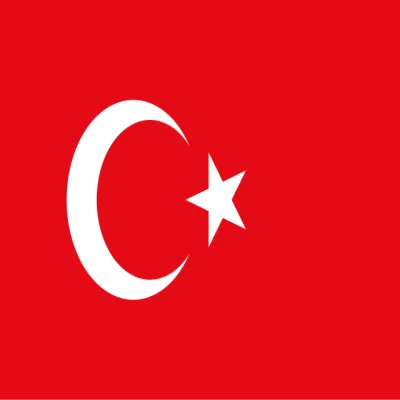When you visit Turkey or interact with Turkish speakers, learning a few basic phrases can enhance your experience and show respect for the local culture. One of the simplest and most useful greetings is “Merhaba,” which means “Hi” in Turkish. This blog will explore the importance of greetings in Turkish culture, other common phrases, and tips for engaging in friendly conversations, making your interactions in Turkey warm and welcoming.
Understanding Turkish Greetings:
Merhaba:
The Universal Greeting “Merhaba” is the most common way to say “Hi” in Turkish. Pronounced mehr-HAH-bah, this greeting can be used in almost any social situation, whether you’re meeting someone for the first time, entering a shop, or passing by someone on the street. The warmth of this greeting reflects the Turkish people's hospitality and friendliness.
Cultural Importance of Greetings:
In Turkey, greetings are more than just simple exchanges; they are significant social gestures. A warm greeting can set the tone for the interaction and is often the first step toward building rapport. It shows respect and acknowledgment. Customary greetings can vary based on the level of familiarity and formality, making it essential to recognize the appropriate situations for different phrases.
Other Common Greetings in Turkish:
• Selam: This is a more casual and informal way to say “hello,” similar to saying “hi” in English. It's often used among friends or peers.
• Günaydın: Meaning “Good morning,” this greeting is used in the morning hours to wish someone a pleasant start to their day.
• İyi akşamlar: Translated as “Good evening,” this phrase is commonly used in the late afternoon and evening when meeting someone.
• İyi geceler: Meaning “Good night,” this term is used primarily when bidding farewell before evening or bedtime.
Engaging in Conversational Basics:
Starting a Conversation:
After greeting someone with “Merhaba,” you can easily continue the conversation by asking a simple question or commenting on your surroundings. Some useful phrases include:
• Nasılsınız? (How are you? - formal)
• Nasılsın? (How are you? - informal)
The response usually involves:
• İyiyim, teşekkür ederim. (I am fine, thank you.)
Expressing Happiness:
To express happiness or excitement, you could use phrases like:
• Ne güzel! (How nice!)
• Harika! (Wonderful!)
These phrases can help you engage more deeply with locals, as they resonate well with the warm social culture of Turkey.
The Art of Farewells:
As important as greetings, farewell phrases create a positive closing to conversations. Common farewells include:
• Hoşça kal (Goodbye - when addressing someone leaving)
• Güle güle (Goodbye - when addressing someone staying)
Switching to local farewells leaves a pleasant impression on your Turkish friends.
Cultural Etiquette:
Importance of Eye Contact:
In Turkish culture, maintaining eye contact during greetings indicates sincerity and respect. When saying “Hi,” ensure to establish eye contact to convey your friendliness and engagement.
Greeting Protocols:
Handshakes:
A firm handshake is customary when greeting someone for the first time. Friends and family may greet each other with hugs or cheek kissing, emphasizing closeness and warmth.
Politeness:
Formality is important in Turkish culture, particularly when addressing elders or those in positions of authority. Using the formal versions of greetings is appropriate in such contexts.
Using Gestures:
In Turkish culture, using gestures, such as placing your hand over your heart while greeting someone, can convey sincerity and warmth, further enhancing the connection between individuals.
Conclusion:
Learning how to say "Hi" in Turkish is an excellent way to start your journey through the vibrant culture of Turkey. By incorporating greetings and basic phrases into your interactions, you not only enhance your travel experience but also show respect and appreciation for the local customs. Remember that greetings are just the beginning; engaging in conversation and expressing interest in the Turkish culture will undoubtedly lead to warmer connections and memorable experiences during your travels.
.webp)














